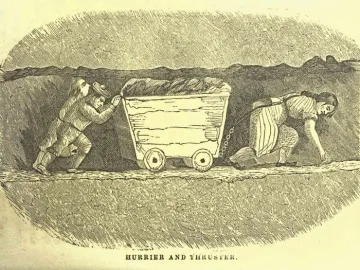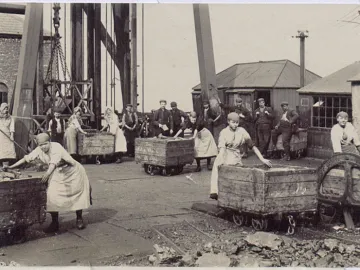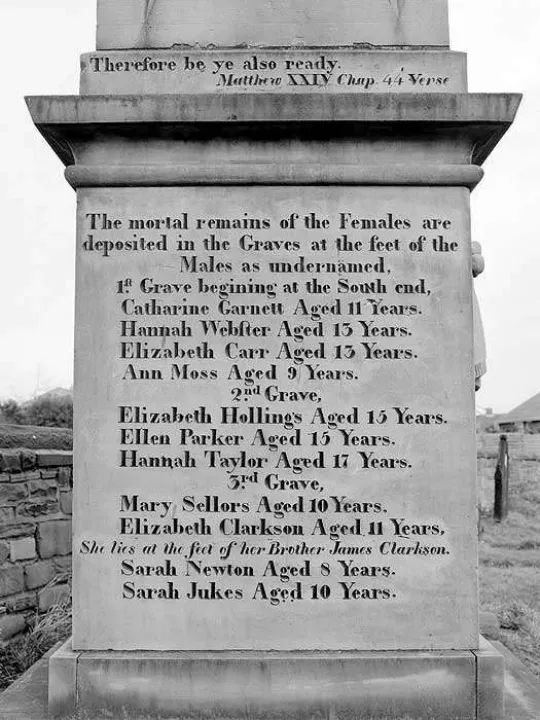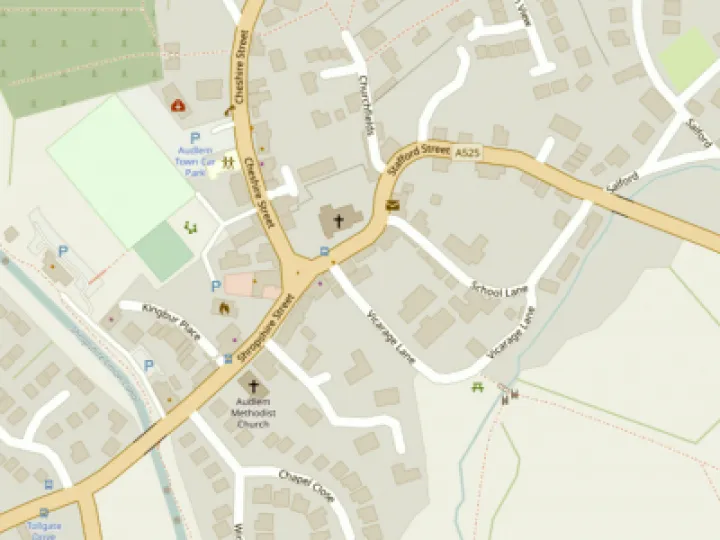History Shorts 37 by Val Mackin
Audlem and District History Society]
There were several commissions during the nineteenth century including the 1842 Children's Employment Commission which examined the employment of women and children in mines and manufacturing. To help show what conditions were like, the commissioners had a series of sketches made of the jobs done by children and women underground. It was dirty, hard, physical work in the dark. These pictures horrified the Victorian public. Examples referred to in the report included:
- a four year old boy left in the dark for 12 to 14 hrs, not being able to move. His job was to open and close the air lock door when a truck was going by.
- that it took two men to lift a basket of coal onto the back of a girl or a woman who then had to walk a mile with this burden to the mouth of the mine, repeating this up to 20 times a day.
- 17 year old Patience Kershaw, from Halifax, gave evidence to the commission:
"I go to the pit at 5 o'clock in the morning and come out at 5 in the evening; I get my breakfast, porridge and milk, first; I take my dinner with me, a cake, and I eat it as I go; I do not stop or rest for the purpose, I get nothing else until I get home, and then have potatoes and meat, not every day meat.

Sometimes they beat me if I am not quick enough, with their hands; they strike me upon my back. The boys take liberties with me sometimes; they pull me about. I am the only girl in the pit; there are about 20 boys and 15 men; all the men are naked. I would rather work in mill than in coal-pit."
Note by Sub-Commissioner Scriven: 'This girl is an ignorant, filthy, ragged and deplorable looking object, and such a one as the uncivilised natives of the prairies would be shocked to look upon.'
The Ballad of Patience Kershaw was turned into a song by Frank Higgins. After hearing the song, sung by Roy Bailey and reading 'Human Documents of the Industrial Revolution in Britain' by E. Royston Pike, I based my university dissertation on the life and work of factories and mines as I found this subject worth telling.

The Coal Mines Act was passed in 1842 as result of Lord Shaftesbury's report into the employment of women and young children in coal mines. The law stopped all females and children under 18 years of age from working underground. For many mining families the loss of income from these working women was a disaster. However, the Mines Act did not forbid girls and women from working on the surface at the mine and they came to be known in Lancashire as 'pit brow lasses'. They worked at various jobs ranging from loading wagons to sorting coal.
Get In Touch
AudlemOnline is powered by our active community.
Please send us your news and views using the button below:
Email: editor@audlem.org





